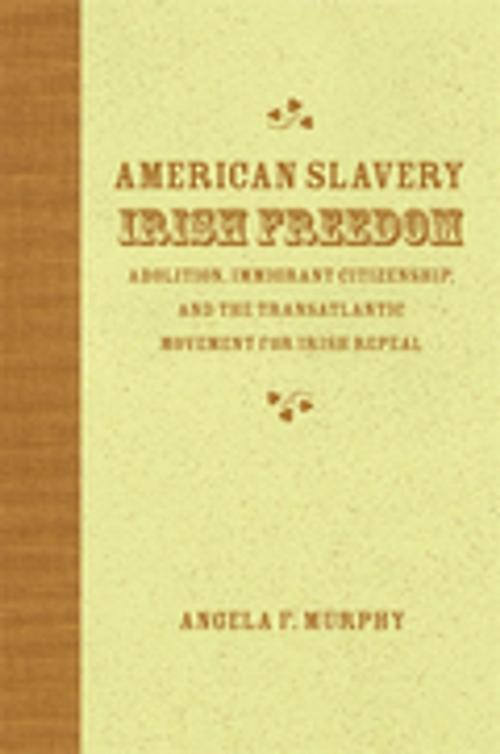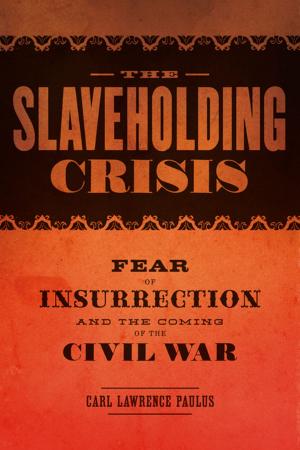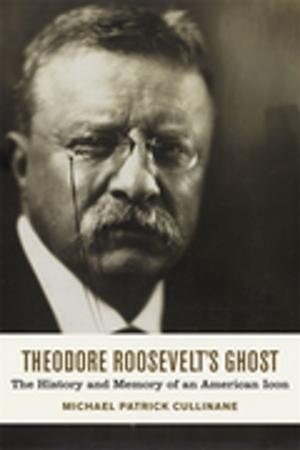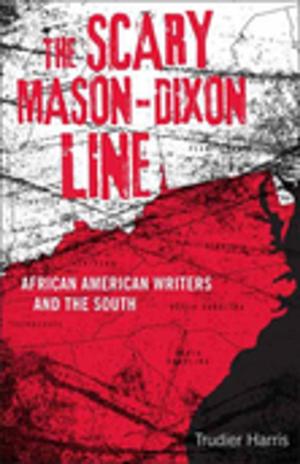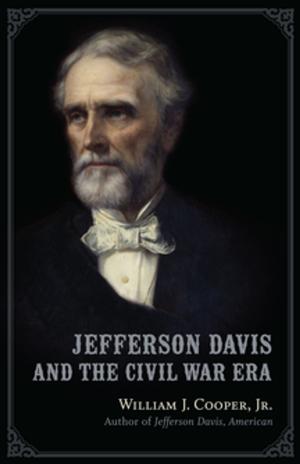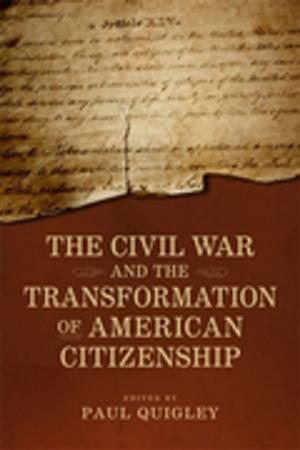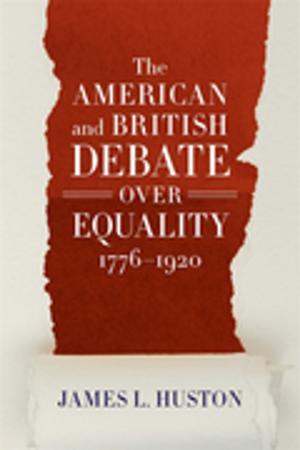American Slavery, Irish Freedom
Abolition, Immigrant Citizenship, and the Transatlantic Movement for Irish Repeal
Nonfiction, History, Ireland, Americas, United States| Author: | Angela F. Murphy | ISBN: | 9780807145876 |
| Publisher: | LSU Press | Publication: | May 24, 2010 |
| Imprint: | LSU Press | Language: | English |
| Author: | Angela F. Murphy |
| ISBN: | 9780807145876 |
| Publisher: | LSU Press |
| Publication: | May 24, 2010 |
| Imprint: | LSU Press |
| Language: | English |
Irish Americans who supported the movement for the repeal of the act of parliamentary union between Ireland and Great Britain during the early 1840s encountered controversy over the issue of American slavery. Encouraged by abolitionists on both sides of the Atlantic, repeal leader Daniel O'Connell often spoke against slavery, issuing appeals for Irish Americans to join the antislavery cause. With each speech, American repeal associations debated the proper response to such sentiments and often chose not to support abolition. In American Slavery, Irish Freedom, Angela F. Murphy examines the interactions among abolitionists, Irish nationalists, and American citizens as the issues of slavery and abolition complicated the first transatlantic movement for Irish independence.
The call of Old World loyalties, perceived duties of American citizenship, and regional devotions collided for these Irish Americans as the slavery issue intertwined with their efforts on behalf of their homeland. By looking at the makeup and rhetoric of the American repeal associations, the pressures on Irish Americans applied by both abolitionists and American nativists, and the domestic and transatlantic political situation that helped to define the repealers' response to antislavery appeals, Murphy investigates and explains why many Irish Americans did not support abolitionism. Murphy refutes theories that Irish immigrants rejected the abolition movement primarily for reasons of religion, political affiliation, ethnicity, or the desire to assert a white racial identity. Instead, she suggests, their position emerged from Irish Americans' intention to assert their loyalty toward their new republic during what was for them a very uncertain time.
The first book-length study of the Irish repeal movement in the United States, American Slavery, Irish Freedom conveys the dilemmas that Irish Americans grappled with as they negotiated their identity and adapted to the duties of citizenship within a slaveholding republic, shedding new light on the societal pressures they faced as the values of that new republic underwent tremendous change.
Irish Americans who supported the movement for the repeal of the act of parliamentary union between Ireland and Great Britain during the early 1840s encountered controversy over the issue of American slavery. Encouraged by abolitionists on both sides of the Atlantic, repeal leader Daniel O'Connell often spoke against slavery, issuing appeals for Irish Americans to join the antislavery cause. With each speech, American repeal associations debated the proper response to such sentiments and often chose not to support abolition. In American Slavery, Irish Freedom, Angela F. Murphy examines the interactions among abolitionists, Irish nationalists, and American citizens as the issues of slavery and abolition complicated the first transatlantic movement for Irish independence.
The call of Old World loyalties, perceived duties of American citizenship, and regional devotions collided for these Irish Americans as the slavery issue intertwined with their efforts on behalf of their homeland. By looking at the makeup and rhetoric of the American repeal associations, the pressures on Irish Americans applied by both abolitionists and American nativists, and the domestic and transatlantic political situation that helped to define the repealers' response to antislavery appeals, Murphy investigates and explains why many Irish Americans did not support abolitionism. Murphy refutes theories that Irish immigrants rejected the abolition movement primarily for reasons of religion, political affiliation, ethnicity, or the desire to assert a white racial identity. Instead, she suggests, their position emerged from Irish Americans' intention to assert their loyalty toward their new republic during what was for them a very uncertain time.
The first book-length study of the Irish repeal movement in the United States, American Slavery, Irish Freedom conveys the dilemmas that Irish Americans grappled with as they negotiated their identity and adapted to the duties of citizenship within a slaveholding republic, shedding new light on the societal pressures they faced as the values of that new republic underwent tremendous change.
